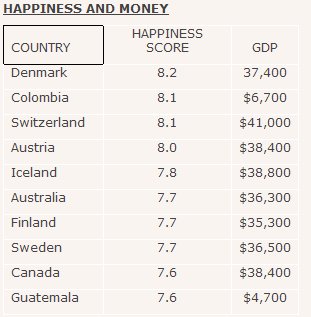The Truth About Your Life Purpose
What You Think You Know About Your Life Purpose And Success
What do you strive for when you've achieved all your life purpose?
In With Purpose, psychologist Ken Dychtwald reevaluates the goals of retiring baby boomers and their responsibility for improving the world in a lasting manner -- either socially, environmentally, or politically. With ground-breaking research on what inspires or fulfills us, Dychtwald highlights real-life examples of how anyone can make a practical yet enduring impact on their community. Perfect for fans of Rick Warren's The Purpose Driven Life, With Purpose is a functional look at why we are conditioned to measure our happiness by monetary standards, and how to respond when these long-held beliefs fail to provide us the fulfillment we desire.
Life Purpose: You Only Think You're Happy
There is an avalanche of new research in the areas of success and happiness. Perhaps the leading light in this field is Martin Seligman, a University of Pennsylvania research psychologist, who in the last few years has coaxed his profession into going beyond the mere study of what makes people depressed and leads to their neuroses to a more uplifting place -- to the study of what makes our heart sing and what might be done to improve our level of satisfaction. In his book, Authentic Happiness, he boils down true happiness to three components: pleasure (things that feel good), involvement (being immersed in things like family, work, and feel-good hobbies), and meaning (using personal strengths to serve a larger end).
Of the three, Seligman says, pleasure (the one most closely linked to material gain) is the least consequential, a finding that has been reaffirmed in numerous follow-up studies. For example, Edward Diener, a psychologist at the University of Illinois, and another leading light in the study of happiness, interviewed members of the Forbes 400, the richest Americans, and found that they were marginally happier than the population as a whole. Those with wealth often feel the most envy and stress, Diener concluded. Sociologists call this type of jealousy "reference anxiety." But you will know it for what it is -- keeping up with the Joneses. People don't often ask "Do I have enough money to meet my needs?" They ask instead, "Is my house nicer than my neighbor's?"
Does money and happiness make your life purpose
Money and happiness really do not go hand in hand -- at least not in the manner you would expect. Canadian researcher Elizabeth Dunn found in a series of studies that how much money you have is inconsequential to your happiness, but how you spend what you have is critical. In her study, she looked at workers who received bonuses of varying sizes and discovered that those who spent at least a third of their bonus on others were measurably happier than those who spent all of the money on themselves -- no matter how much bonus money they had been given.
In polls taken by the National Opinion Research Center, about one-third of American say they are "very happy," and that rate has been fairly constant for decades. Yet over the same time frame wealth in the United States has increased dramatically, and by the way so has the incidence of clinical depression which is as much as ten time more common than it was two generations ago. One out of every five women in America is on antidepressants, and each year six million more begin taking them. The World Health Organization predicts that by 2020 depression will be second only to heart disease in terms of global burden of illness. Greater wealth hasn't made us happier; it may even have contributed to greater amounts of stress.
Interesting fact about your life purpose and money
The World Database of Happiness presents one of the most interesting examinations into whether or not money buys happiness. This database is an ongoing register of scientific research on the subjective enjoyment of life. It brings together findings that are scattered throughout many studies and provides a basis for synthetic work. Overall life satisfaction is assessed by means of numerous surveys in general population samples worldwide including data from 1995 up to and including 2005. The scores are based on responses to a question about satisfaction with life and perception of personal well-being, the answers to which were rated on a numerical scale ranging from dissatisfied to satisfied. Rating scales ranged from 0 to 10.
As you can see from the following list, when you place each country's GDP per capita (in current U.S dollars), there is only marginal correlation between how much money people make and how happy they feel. For example, Guatemalans have the same happiness score as Canadians, although their income is only one-eighth as much. What does tend to reliably correlate with happiness is the quality of relationships with family and friends and a personal sense of belonging to one's community.
From With Purpose. Published by HarperCollins Publishers Ltd. copyright © 2009 by Ken Dychtwald, Ph.D. All rights reserved. Reprinted by permission of HarperCollins Publishers Ltd.
Just Imagine Your Success And Do It Now,




